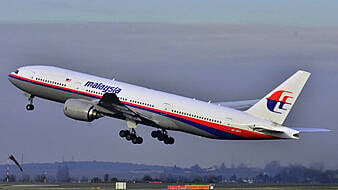A new statutory tracing system allowing adoptees to make contact with their birth relatives began operation on Monday.
It follows the enactment of the Birth Information and Tracing Act. Under the new law, people will also be able to access information about their early life. This includes access to birth certificates, and information about their birth, early life, care and medical information.
Who can avail of the new service?
Those affected by an adoption process can access the new tracing service, including:
- an adopted person
- a person who is or has been the subject of an illegal birth registration
- a person who has been nursed out or boarded out
- a person who has reasonable grounds for suspecting that they may have been nursed out or boarded out
- a person who resided as a child in a mother and baby home or county home
The new law confirms the right of a person to know their origins.
How does the tracing system work?
The newly established Contact Preference Register (CPR) will enable contact between family members affected by adoption.
Applicants have the option to register information that could be beneficial to a family member, such as medical or background information.
Applicants to the register can lodge an item (letter, photograph etc.) for a specified person, which will be given to the specified person if they join or have previously joined the register.
Those who wish to maintain privacy can also register a 'no contact' preference on the CPR.
What happens if applicants register a 'no contact' preference?
Under the new act, adoptees have the right to access information about their identity at birth. This means all adoptees will have access to historical information relating to their family, including names, addresses and background information, regardless of a 'no contact' preference.
If a 'no contact' preference is logged, adoptees or other applicants will be asked to respect the privacy of those individuals.
Who can register on the CPR?
- An adopted person (legally recognised adoption)
- A person who was nursed/boarded out
- A person who may have spent time in a Mother and Baby Home or County Home (this may have been prior to being adopted or placed in a care arrangement and includes mothers and children).
- A person who may have been illegally adopted (where a birth was illegally registered and no adoption took place)
- Mother or father of an adopted person (where either parent placed a child for adoption or in a care arrangement)
- Sister or brother of an adopted person (where a brother or sister has been placed for adoption or in a care arrangement)
- Grandparent, aunt, uncle or first cousin of an adopted person (where a relative has been placed for adoption or in a care arrangement)
- Adoptive parent of an adopted child under 18
- Adoptive parent of an adopted person/child who is deceased
- A family friend of an adoptee or mother/father who is deceased
How can you request information?
To apply for information held on the CPR, applicants can visit a dedicated website, birthinfo.ie, and follow the relevant steps.
Alternatively, applications can be processed by Tulsa via post.
How long will it take to access information?
Speaking earlier this week, Patricia Carey, chief executive of the Adoption Authority of Ireland, said the processing time for information requests was 30 days.
In certain circumstances, request may take up to 90 days.
Earlier, Minister for Children Roderic O'Gorman said additional staff, extra resources and better IT will mean Tusla and the Adoption Board will be prepared to cope with the increase in people seeking information.







